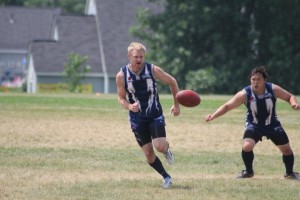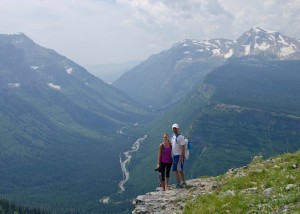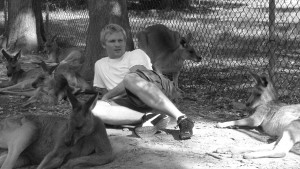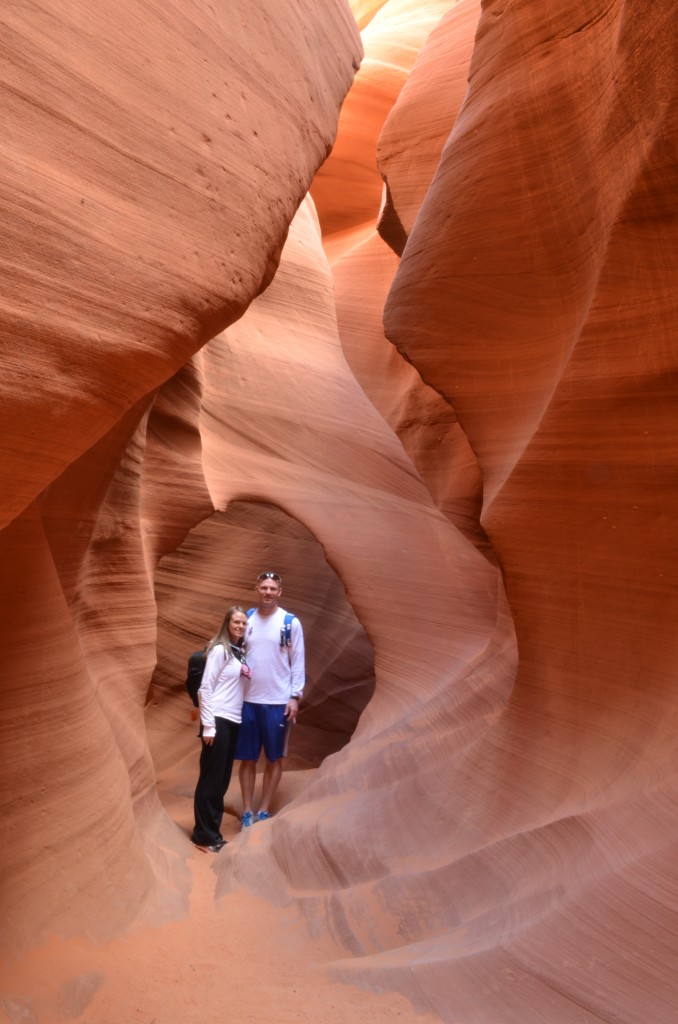Thanks to Kyle Rasmussen, Owatonna High School & Iowa State University alum, for this contribution…
What do you work for?
Work is a means to climb Maslow’s hierarchy of needs. The simple, honest, most primative answer is I work for survival – food and a place to live. Those are the easy responses that universally, everyone works for.
In line with climbing up that Maslow pyramid, I am a teacher and coach so I get to work with a variety of kids and adults. A 17 year old athlete of mine was talking with a fellow coach. He was retired from his profession but volunteered his time as a coach. In the conversation the athlete said “I wish I was retired.” The coach responded “You’re too young to want to be retired. You lack the experience to appreciate retirement.” While retirement is a long time away, I work for an appreciation for my time off on weekends and summers.
It is not a mystery that teachers have a tremendous benefit of having 10-12 weeks off during the greatest season of the year. I try very hard to not take those days for granted by staying up late, sleeping in late, drinking excessively or watching tv/playing video games throughout the afternoon. There is a time, place and even sometimes a need for each of those activities, but it would be a waste and a failure to fill such a vast amount of time off with such lazy and common activities.
I have a wide variety of interests: running, biking, Australian football, building, cooking, photography, traveling etc. During summers and weekends I get to explore all of those endeavors with a tremendous amount of vigor. I work so that I can do those each of those things.
What’s your favorite part of your job?
As a high school science teacher I satisfy two needs in a job: working in science and working with people. To finish off the Maslow pyramid, my favorite part of my job is actually also the third part of what I work for – to teach science. Science is more than just content, it is a practice. It is a practice that means to answer what do we know, and why do we believe it to be true? While the inner workings of Newton’s laws of motion and kinetic molecular theory can be enticing, they don’t have a great application for everybody. What we know and why we believe it, however can apply to everyone. It is not an easy skill or idea to develop but I try. When I watch students actually apply that idea is the favorite part of my job.
How did you prepare for your life and career so far?
To become a teacher is very simple – have a degree and take classes that teach you how to teach. I graduated from Iowa State University with B.S. in Chemistry and a Master’s in Teaching. Those classes were great at providing me with an understanding of chemistry and teaching skills, but career and life require more than what you learn from a class. The two most prominent aspects of my life that helped prepare for me for career and life would be my athletics and my transient year(s) following college. To say that I intentionally underwent these activities to ‘prepare’ for life and career is misleading. Neither experience was pursued as an intention to prepare for life and career. Only in hindsight have I really recognized the preparation that I was receiving.
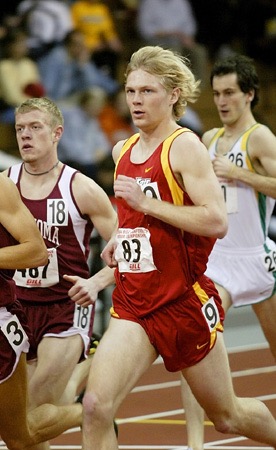
David Osterhaus/Iowa State Daily
Kyle Rasmussen runs the 5000 meter run at the Big XII Conference track and field championship on Friday, Feb. 27, 2004, in the Bob Devaney Center in Lincoln, Neb.
While athletics, more specifically college running, is unique to my story, a similar approach can be applied to other endeavors that require a tremendous amount of work and are goal oriented. College running, when taken seriously, is by itself a full time job that requires attention to sleeping, eating, working out and recovering 24 hours a day, every day. All of that is to be done while simultaneously trying to achieve classroom success. And then there are the nerves that come along with warming up for a race, and the pain, patience, and aggressiveness that are required to compete in a race, and finally the emotional response of (not) achieving goals post-race. It wasn’t until 5 years after I completed my college athletics that I realized how it actually prepared me for life and career.
I coached alongside a former college/world class wrestler in wrestling. After putting the guys through a truly grueling practice he brought the guys together to discuss what just happened. He ultimately brought the discussion around to the idea that “we train to know how to respond, WHILE WE ARE TIRED.” The emphasis here is while tired. Everyone can be successful when they feel good, have confidence, and are excited to do whatever it is that they do. It’s during the times while you are tired, fearful, angry, depressed, anxious, etc that you have to find a way to continue to battle in spite of those emotions. In both career and life there are lots of things I do not want to do, and sometimes under a great deal of stress. However it is through athletics that I have been able to practice finding a way to endure while coping with stressed emotions.
The other aspect of my life that prepared me for career and life was my days as a ‘drifter.’ As noted earlier I did not intend to be jobless or to some degree homeless, but experiences like that are often your greatest teachers, if you allow them to be. I graduated college at what was the very beginning of the “2008 Global Financial Crisis,” about 8 months prior to the first crash. As corporate bailouts were unrolled, public school funding was dropping and as a result schools were absorbing positions – ultimately new grads were at a disadvantage for finding new employment. Little did I, or anyone, know that would become the norm for 2 more years. It was probably pride but finding a minimum wage job with a degree in chemistry was more terrifying to me than having no job. This was the 3 year stretch in my life where I learned the difference between want and need. Earning less than $15K of annual income is a very intense teacher. Eventually, I needed a big change in life, and I always wanted to go down under. Finding a silver lining I made sacrifices, saved money, and travelled to Australia by myself for three and a half months. Traveling abroad solo brought about a new and intense set of emotions and fears. However, as any solo traveler who has stuck it out will tell you, the outcome of such fears is a new and intense sense of confidence, independence and a completely new view of what is and what is (rarely) not doable.
When I returned stateside I continued wandering but this time in the United States as new grads still struggled for new jobs. I was able to land a few long term substitute teaching positions before I finally landed at Wayzata High School and have been there ever since. They offered me a steady paycheck, benefits, and what would eventually become a wife – we got married July 24th of this year.
I did not pursue competitive running as a means to prepare for career or life, and I certainly did not pursue unemployment as a means to prepare for career of life, but I can say with certainty that they have both been my greatest teachers.
What do you do for fun and enrichment?
Everything. My trip to Australia spawned a desire to travel. From traveling came a desire to capture those travels through photography. I spent most of my effort in college focused on running. As a result, keeping a steady job was more difficult than I wanted, so I forwent a regular paycheck. Upon finishing a small landscaping job for a friend, I told him I could build him a deck (it can’t be that hard!). He called my bluff. I bought a $10 how to build your own deck manual and from there spawned an interest in building and construction. There is a sense of accomplishment when you can visibly see your own progress. That turned into me finishing my own basement, concrete floors and walls on up. From my desire to compete and from some residual fitness, I have taken up the sports Australian Rules Football (I play for the Minnesota Freeze) and mountain biking – in Minnesota it should probably be called Hill Biking. And I like to cook.
What are you proud of?
In times of stress I rarely panic. And I have a wonderful wife.
What advice can you give younger people as they prepare for the adult world?
When I first I read this question I focused just on what advice can you give younger people? So I thought of something that has been a corner stone for my lifelong learning. Post high school I returned to visit a teacher. We were discussing how “pointless” some of the classes were that we were required to take. After our venting Mr. Metzler urged us to take something away from those classes and any future experiences like them. If they are required, then they are required and you will have to put your time in, no escapes. If you have to put time in, do not allow all of your time to be wasted, and find something, anything to take from it. These perceived “time wasters” will never go away, ever. So when you encounter them, find a way to pull something positive from it.
However, after thinking about that advice my mind wandered and I felt like I could write a book on “what I wish I would have known when I was younger?” After reading the question more thoroughly, I focused more on as they prepare for the adult world? With a greater focus on the adult world aspect, I interpreted it as there being something different between adult world and younger people world and in turn, what would prepare younger people for the transition across the two worlds? Because I am high school teacher I live as an adult, but my job is to observe and interact with younger people. As I contrasted and compared the two groups, I hunted for something profound but, to no avail. Then it finally occurs to me. Every younger person needs to know the magic formula to prepare for the adult world.
The magic formula is: to genuinely believe that a magic formula does not exist. It seems silly to think about because everyone will (or should) tell you that they know a magic formula does not exist, but at the same time everyone has a voice in their heads thinking, hoping and perhaps even subconsciously searching for one that actually does exist. In the end, if you want to achieve something big, what is going to garner the most success is not magical – consistent action. Both parts are valuable in their own way, but when put together is when special things happen. Consistent is the idea of doing something well for not 1 week or 3 weeks or 5 weeks, but more so across the long term – perhaps in the idea of lifestyle. And action is very simple: thoughts, intentions, wishes and such are never actions just the precursor to action. Action requires doing.
Whether they know it or not, across both worlds there are a fraction of individuals who understand the idea of consistent action. To earn an ‘A,’ to earn a promotion, to make varsity, to lose weight, to get more fit, to be financially independent, to say ‘no’ to alcohol, to pay off debt, to be in a good relationship, to walk away from a bad relationship, to raise a child, to maintain friends, to hold a job (and sometimes even to just get a job), to have the high score in pac-man all require the same thing: consistent action. In some situations for some people that idea is inherent, in others it might seem near impossible.
To prepare for the adult world is to understand that what cultivates success in the younger people world is the exact same thing that cultivates success in the adult world– no magic formula, just consistent action.







